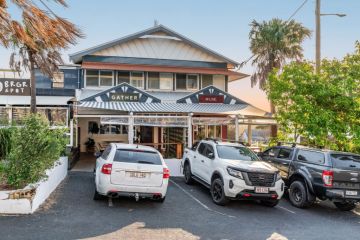What you need to know about home insurance before renting your property on Airbnb
The short-term rental market has allowed home owners to earn additional income by leasing their homes using platforms like Airbnb or Stayz.
It’s also proved useful for investors looking to increase yields or fill gaps between tenancies, or renovators covering mortgage repayments while awaiting approval of plans.
However horror stories involving parties, fights and drugs have revealed the importance of being adequately insured when renting out your home, even for short periods.
Whether it’s your home or a rental, it’s an investment worth protecting. But while the sharing economy has made it easy to monetise idle assets, navigating a complex insurance market isn’t any simpler.
Some short-term letting platforms offer insurance as part of the letting fee, but the level of coverage may be limited.

Airbnb actually encourages home owners to take out additional insurance for events not covered under its policies.
So what are your options to avoid your lucrative side hustle turning into an expensive nightmare?
Check your current policy
Before letting your home, read your policy carefully and clarify what’s covered with your insurer.
It’s unlikely that standard home and contents insurance is sufficient, even if you’re letting just one room, as some damage isn’t covered.
“If you’re renting a property out, you need landlord insurance,” says Canstar group executive of financial services Steve Mickenbecker. “Malicious damage done by a tenant is not covered in your standard home and contents policy.

“Some policies will actually be voided because short-term tenancy will be viewed as carrying out a business,” he adds. “That’s a standard exclusion for home and contents policies.”
If you think you can get away with keeping your insurer in the dark, think again. Most home insurance policies have non-disclosure clauses, meaning claims can be denied because the policyholder withheld important information.
This is because a revolving door of guests increases the likelihood of something going wrong. “You’d be hard pressed arguing that [the risk profile] didn’t change,” Mickenbecker says.
Compare insurance products
Although taking out landlord insurance is the best way to make sure you’re covered, even if you live in the property, not all policies are equal.
Home owners should choose carefully to make sure holiday letting is included. “Only 20 per cent of standard landlord policies cover you for short-term tenancies,” Mickenbecker says.
It’s likely that home owners using short-term letting platforms will need to pay higher premiums. “You’d expect them to be higher – it’s a higher risk profile,” Mickenbecker says. “There’s much less scrutiny on the people renting the property, so a lot can go wrong.”
It’s risky to rely solely on insurance or guarantees provided free of charge by the letting platform.

Airbnb, which dominates the short-term letting space, provides liability insurance and a guarantee to protect against property damage, but this may not cover some serious incidents.
“The property damage it covers is accidental damage, not malicious damage,” Mickenbecker says. “You hear about these horrendous parties where 200 people turn up at an Airbnb rental and trash the place. That’s malicious damage so you’re not covered for that.”
Most landlord insurance products provide liability cover for up to $20 million. Airbnb hosts are automatically covered against liability claims of up to $US1 million, which may be insufficient. “It’s conceivable you could have a claim for more than that,” Mickenbecker says.
“This is one case where you really do have to read the fine print.”
An Airbnb spokesperson said there have been more than half a billion guest arrivals at Airbnb listings worldwide, and significant property damage was reported only 0.004 per cent of the time.
Although the chances of a major incident are low, if something does happen, the consequences for underinsured landlords are serious. Risk management should form a key part of any investing strategy, and the onus is on the property owner to protect their interest.
Assuming you’re covered simply won’t cut it, Mickenbecker says. “This is one case where you really do have to read the fine print.”
We recommend
We thought you might like
States
Capital Cities
Capital Cities - Rentals
Popular Areas
Allhomes
More









